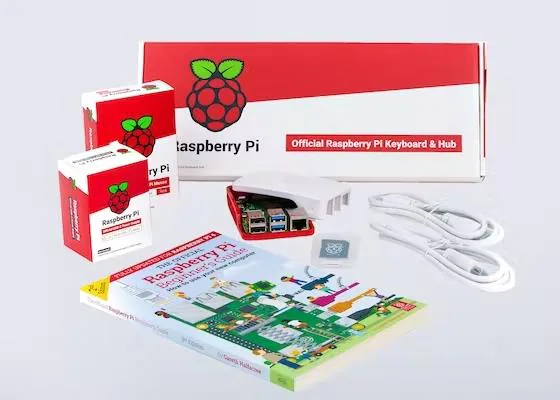D
D Yuniskis
- Jan 1, 1970
- 0
Hi Boudewijn,
"Characteristics" that can be quantified -- even if subjectively.
Understood. I was trying to force thinking in terms of "haptic"
instead of the natural tendency (here?) to think more in terms
of "devices" (electronic in this forum).
Due to a childhood injury, I can't achieve full pronation (or
supination) with my left hand. As a result, any "handled"
door "knobs" can only be operated with my right hand. When
faced with such a door, I use my *hip* to actuate the handle
and walk through the door backwards/sideways (turning as I
go through it).
This only works for doors opening "out" :> That's pretty much
the case for "foot power", too.
By contrast, a "knob" doesn't care about the angular orientation
of the hand -- so long as you (I) can grasp the knob.
Yes. But it does so at the expense of being unfriendly to those
by whom it is *intended* to be used. (I haven't thought about how
you could provide this functionality in a "win-win" manner)
Oh, "dangerous fluids" would be the *least* of their worries! ;-)
I.e., the "touch wheel". Can you imagine an application where
a "flat, featureless, immovable surface that detects the
sequential activation of sensors in a circular motion" would
be preferable to some *other* sort of haptic interface to
implement the same functionality?
E.g., a mechanical *wheel* "feels" better (but would be vulnerable
to liquid spills); raised "curbs" on the outer diameter would
be a boon to guiding your fingertip without requiring vision
(but would make the device some fraction of an inch "thicker");
etc.
I didn't mean *all* circumstances. Rather, I was aasking if there
are circumstances (see above) where the iPod technique is *better*
than alternative implementations. I.e., what application criteria
would lead to *that* as the "ideal" solution?
Boudewijn said:Op Mon, 01 Mar 2010 20:50:34 +0100 schreef D Yuniskis
Boudewijn said:Op Mon, 01 Mar 2010 04:44:29 +0100 schreef D Yuniskis
<[email protected]>: [...]
What would you nominate as the "best" haptic interface?
For doing what? Pointing something out on a screen, inputting text
and/or context-sensitive instructions, digging a ditch, positioning
concrete slabs, removing a kidney and piloting an aircraft would
usually benefit from different interface properties (haptic or not).
I disagree. I am sure there are attributes of a haptic interface
(or any other interface, for that matter) that make them better
or worse than other implementations in their class.
Are you talking about rather concrete attributes? What kind of
attributes are you thinking about?
"Characteristics" that can be quantified -- even if subjectively.
You used parenthesis. Anyway, I got confused because interfaces that do
not belong to a device, are probably off-topic and also not the scope of
your research. Then I got more confused because a device (like a door)
can have different interfaces (knob/handle/sensor/etc.).
Understood. I was trying to force thinking in terms of "haptic"
instead of the natural tendency (here?) to think more in terms
of "devices" (electronic in this forum).
I strongly disagree with that choice: unlike the handle variety, the
knob cannot be operated when carrying stuff with your two hands, as it
requires at least two fingers to turn. (Also, when nobody is watching,
I like to open a door with my foot, which doesn't require special
dexterity when the door interface is of the handle variety.)
Due to a childhood injury, I can't achieve full pronation (or
supination) with my left hand. As a result, any "handled"
door "knobs" can only be operated with my right hand. When
faced with such a door, I use my *hip* to actuate the handle
and walk through the door backwards/sideways (turning as I
go through it).
This only works for doors opening "out" :> That's pretty much
the case for "foot power", too.
By contrast, a "knob" doesn't care about the angular orientation
of the hand -- so long as you (I) can grasp the knob.
Which makes this interface very good at what it's supposed to do: to
protect our children.
Yes. But it does so at the expense of being unfriendly to those
by whom it is *intended* to be used. (I haven't thought about how
you could provide this functionality in a "win-win" manner)
Is this a warning for the unprotected dangerous fluids that children
might find in your house?
Oh, "dangerous fluids" would be the *least* of their worries! ;-)
Define "sort of".
I.e., the "touch wheel". Can you imagine an application where
a "flat, featureless, immovable surface that detects the
sequential activation of sensors in a circular motion" would
be preferable to some *other* sort of haptic interface to
implement the same functionality?
E.g., a mechanical *wheel* "feels" better (but would be vulnerable
to liquid spills); raised "curbs" on the outer diameter would
be a boon to guiding your fingertip without requiring vision
(but would make the device some fraction of an inch "thicker");
etc.
Anyway, in general it is pointless to ask questions
like "is X better than anything in any circumstance", because either we
would all be using X or we would only use X where appropriate.
I didn't mean *all* circumstances. Rather, I was aasking if there
are circumstances (see above) where the iPod technique is *better*
than alternative implementations. I.e., what application criteria
would lead to *that* as the "ideal" solution?

